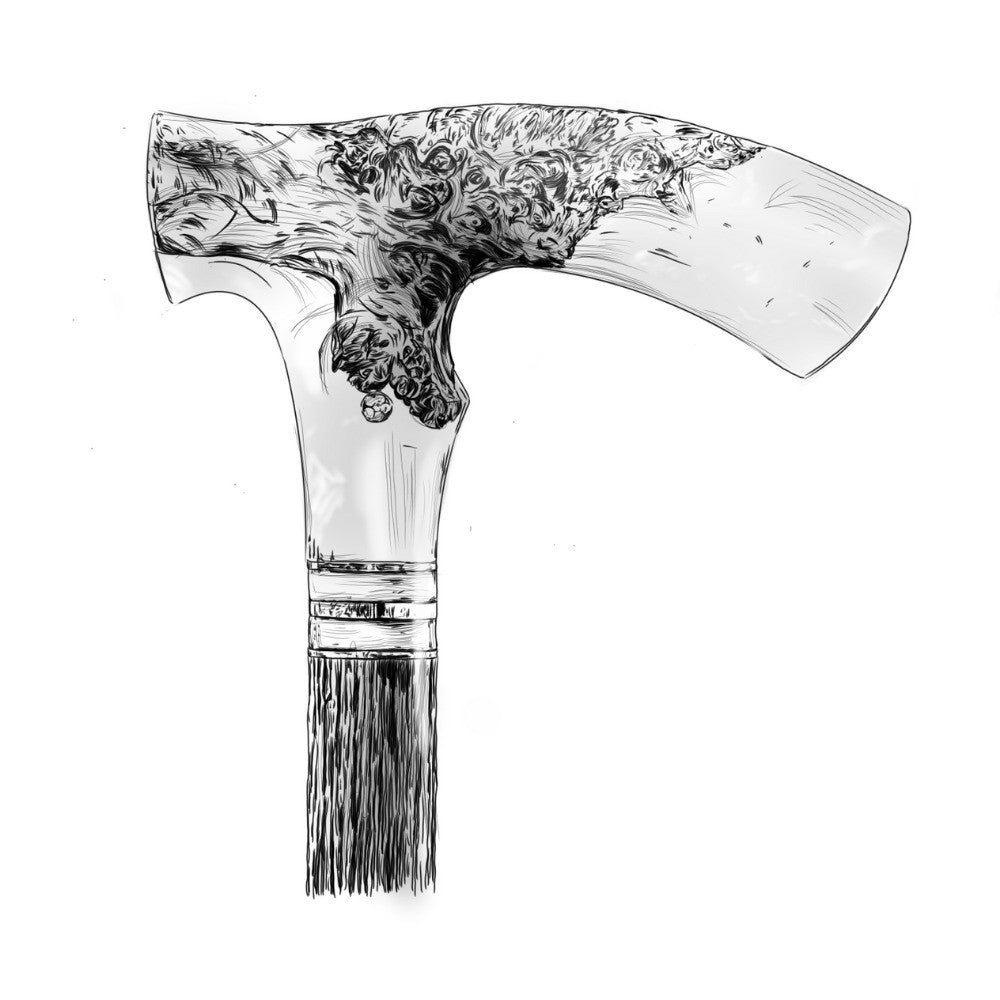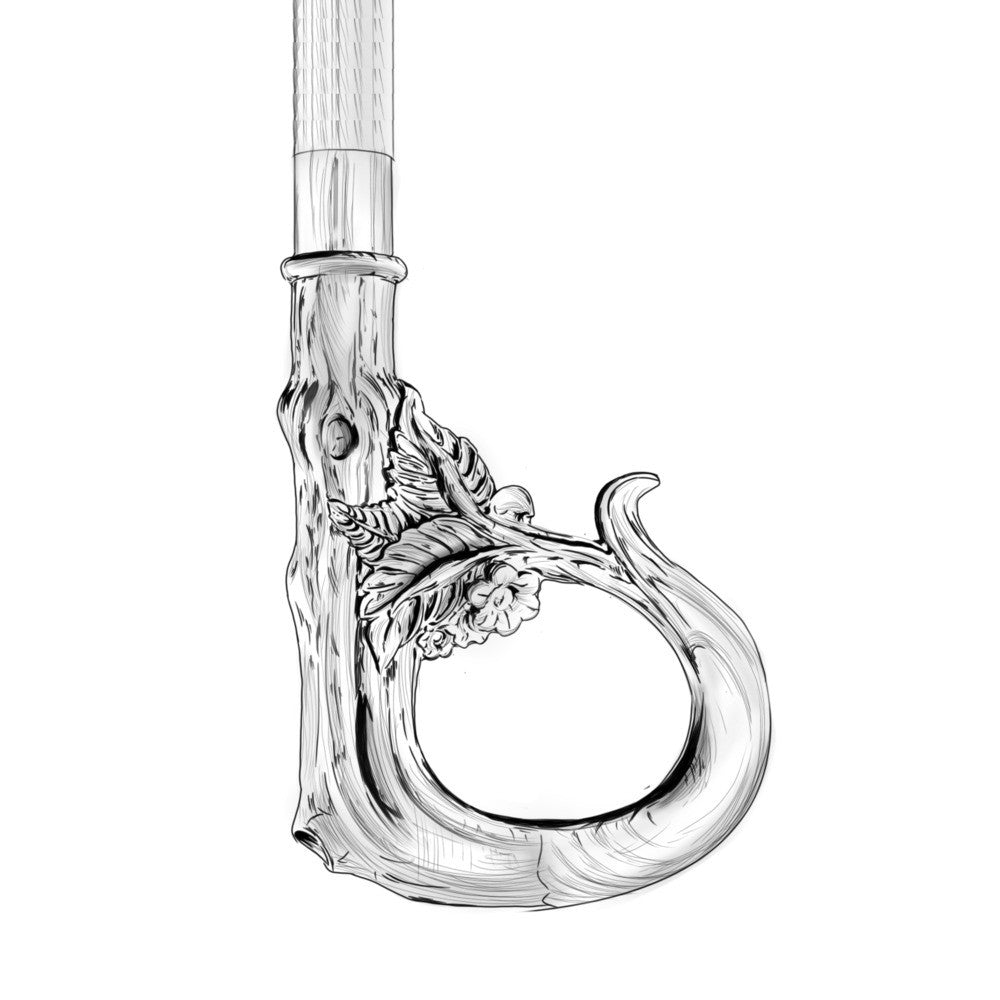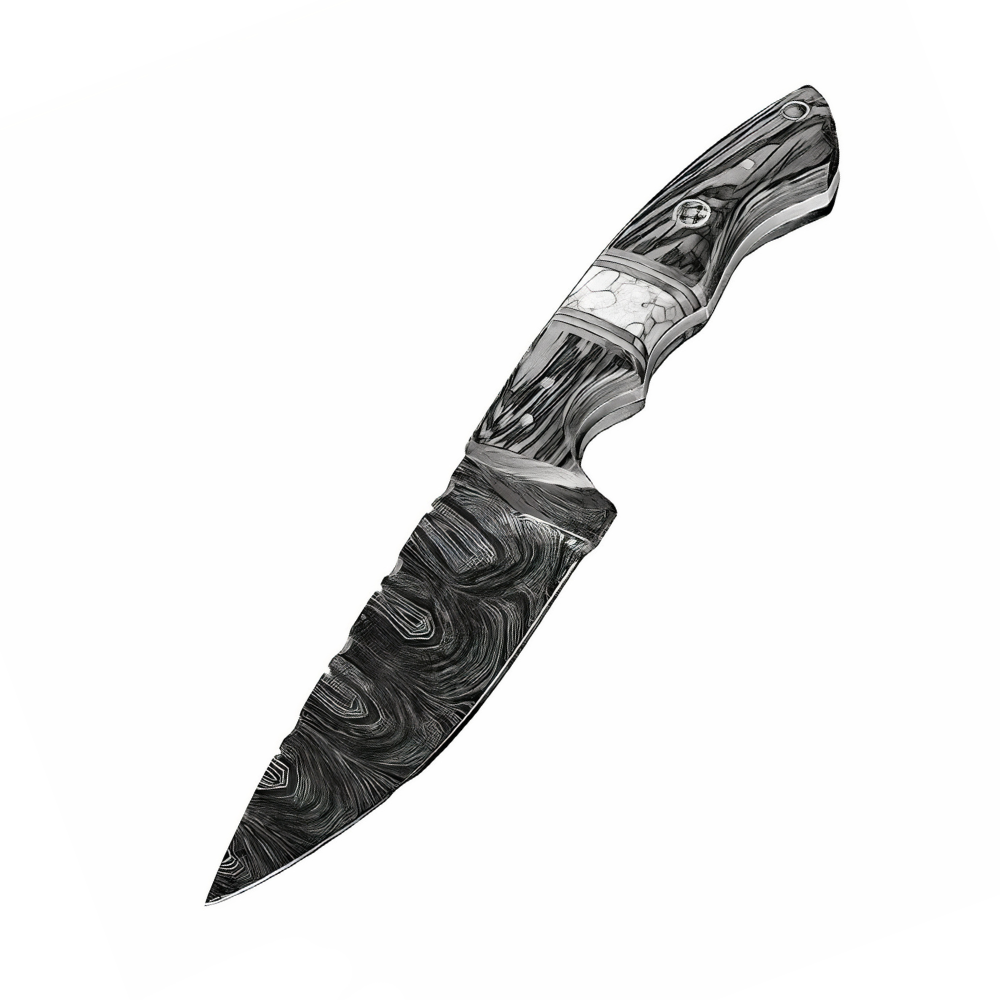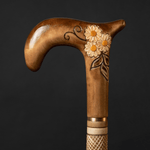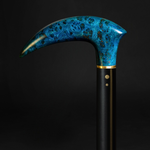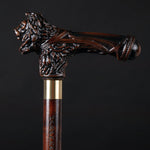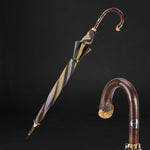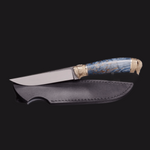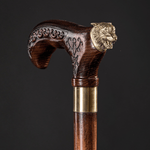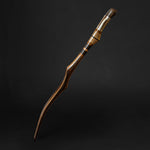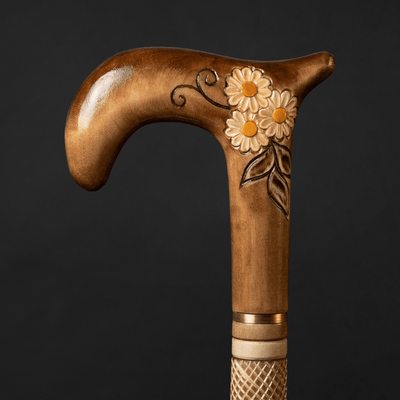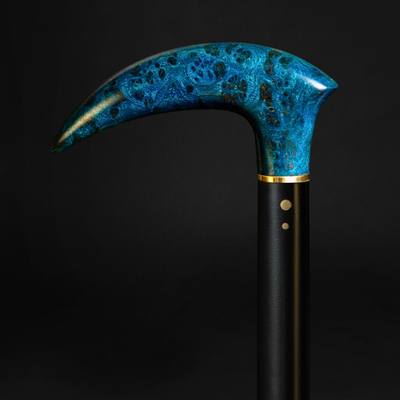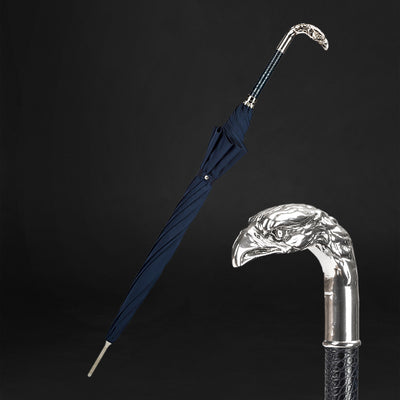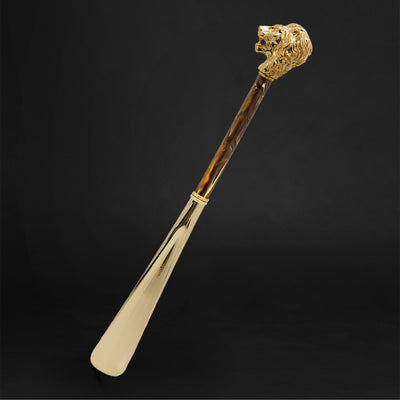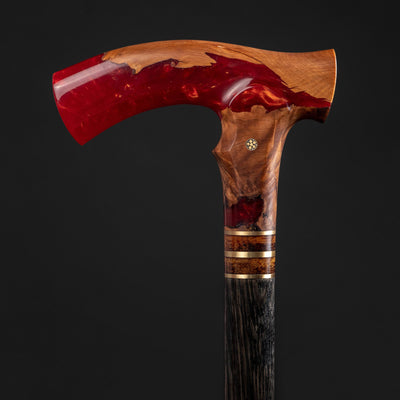You have no items in your shopping cart.
Recent Posts
-
The Art of Christmas Design: Walking Canes That Celebrate the Season in Style
-
How an Ergonomic Walking Cane Handle Prevents Hand and Wrist Strain?
-
How to Walk With a Cane Correctly to Avoid Back or Shoulder Strain?
-
5 Common Mistakes People Make When Buying a Walking Cane (and How to Avoid Them)
-
How to Choose a Walking Cane That Reflects Your Personality (Not Just Your Needs)?
-
Walking Canes That Match Formalwear for Weddings and Events
MOST POPULAR NOW
21
Jun
In today's world, where sustainability is not just a trend but a necessity, the luxury industry is increasingly embracing eco-friendly materials and practices. This shift is evident in the manufacturing of canes, where traditional craftsmanship meets modern environmental consciousness. Luxury canes, once symbols of opulence and status, are now also exemplars of sustainable design, demonstrating that elegance and eco-friendliness can go hand in hand.
Sustainable luxury. Eco-friendly materials and practices in cane manufacturing
Sustainable luxury is an emerging paradigm that prioritizes ethical sourcing, environmental responsibility, and social consciousness. In the context of cane manufacturing, this means using materials and processes that minimize environmental impact while maintaining the highest standards of quality and aesthetics.

Eco-friendly materials in cane manufacturing
The choice of materials is a crucial aspect of sustainable cane manufacturing. Here are some of the eco-friendly materials that are making their way into the production of luxury canes:
-
Bamboo: Known for its rapid growth and minimal environmental impact, bamboo is an excellent sustainable material. It is strong, lightweight, and versatile, making it ideal for cane shafts.
-
Reclaimed wood: Using reclaimed or recycled wood helps reduce deforestation and waste. Each piece of reclaimed wood has a unique character and history, adding to the charm and individuality of the cane.
-
Sustainable hardwoods: When hardwoods are sourced from responsibly managed forests, they can be a sustainable option. Certifications such as FSC (Forest Stewardship Council) ensure that the wood is harvested in an environmentally responsible and socially beneficial manner.
-
Recycled metals: Handles and decorative elements made from recycled metals reduce the demand for new raw materials and lower the carbon footprint. Metals like aluminum and brass can be recycled without losing their quality and durability.
-
Plant-based resins: Traditional resins can be replaced with plant-based alternatives, which are biodegradable and less harmful to the environment. These resins can be used for various components of the cane, providing both strength and sustainability.
Sustainable manufacturing practices
Beyond materials, sustainable manufacturing practices play a vital role in creating eco-friendly luxury canes. Here are some practices that leading manufacturers are adopting:
-
Energy efficiency: Using energy-efficient machinery and renewable energy sources in manufacturing reduces carbon emissions. Solar panels and wind turbines are increasingly being used to power workshops and factories.
-
Waste reduction: Implementing waste reduction strategies, such as reusing offcuts and recycling scrap materials, helps minimize waste. Some manufacturers also use digital design tools to optimize material usage and reduce excess.
-
Non-toxic finishes: Traditional finishes and varnishes often contain harmful chemicals. Sustainable manufacturers are turning to non-toxic, water-based finishes that are safer for both workers and the environment.
-
Ethical labor practices: Ensuring fair wages, safe working conditions, and ethical labor practices is a critical aspect of sustainability. Many luxury cane manufacturers are committed to supporting their artisans and workers, promoting social sustainability alongside environmental efforts.
-
Local sourcing: Sourcing materials locally reduces transportation emissions and supports local economies. By choosing local suppliers, manufacturers can also ensure better quality control and transparency in their supply chains.
The future of sustainable luxury
As consumers become more environmentally conscious, the demand for sustainable luxury products will continue to grow. Luxury cane manufacturers are poised to lead this trend, offering products that are not only aesthetically pleasing but also environmentally responsible.
By choosing eco-friendly materials and adopting sustainable manufacturing practices, these manufacturers are proving that luxury and sustainability can coexist. For the modern gentleman, a luxury cane is no longer just a fashion accessory; it is a statement of values, a testament to the commitment to preserving our planet for future generations.
In conclusion, the integration of sustainable materials and practices in cane manufacturing represents a significant step towards a more environmentally friendly luxury industry. By embracing these changes, manufacturers are not only enhancing the appeal of their products but also contributing to a more sustainable and ethical world. The luxury cane, thus, stands as a beacon of sustainable elegance, redefining what it means to be a modern gentleman in today's eco-conscious era.
Also Purchased
-
Beige Walking Cane for Ladies Chamomile Flower, Wooden Walking Stick
Introducing our beautiful Beige Walking Cane for Ladies with Chamomile Flower, a Wooden Walking Stick that is hand carved and handmade, making it both pretty and unique. This walking cane...$90.00$79.50 -
Exotic Burl Wood Walking Cane – Fashionable Artisan Stick
A sculptural statement in deep, oceanic blue — this walking cane is more than a support accessory, it's wearable art. Meticulously hand-shaped from stabilized burl wood, the handle evokes the...$425.00 -
ArtWalkingSticks™ MAGIC Walking Cane, Handmade - Make to Order
This piece of art is created for those who value details. We make one of a kind, handcrafted wood and resin canes. Our Wooden Canes are completely unmatched in creativity....$430.00 -
Umbrella with Eagle Handle, Fashion Umbrella For Men
Make a bold and fashionable statement with our Umbrella with Eagle Handle - a unique and functional accessory designed for men. The striking eagle handle is the highlight of this...$325.00 -
Fashionable Lion Shoehorn Long Handle, Pearly Brown Shaft, Handmade
Introducing our Fashionable Lion Shoehorn, a handcrafted, long-handled shoe horn with a pearly brown shaft that's both stylish and practical. The intricate Lion design adds a touch of elegance to...$240.00 -
ArtWalkingSticks™ MAGIC Red Walking Cane - Unisex, Handmade
This piece of art is created for those who value details. We make one of a kind, handcrafted wood and resin canes. Our Wooden Canes are completely unmatched in creativity....$425.00
